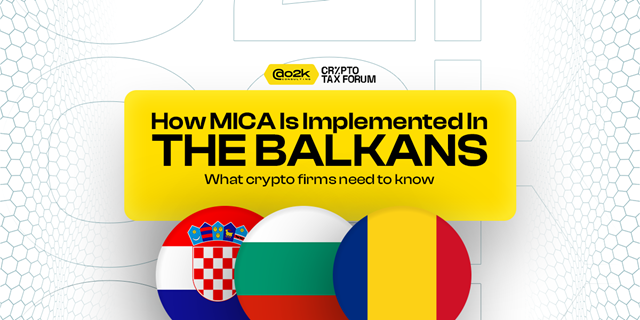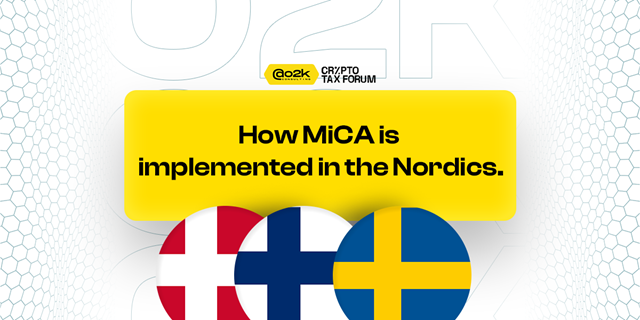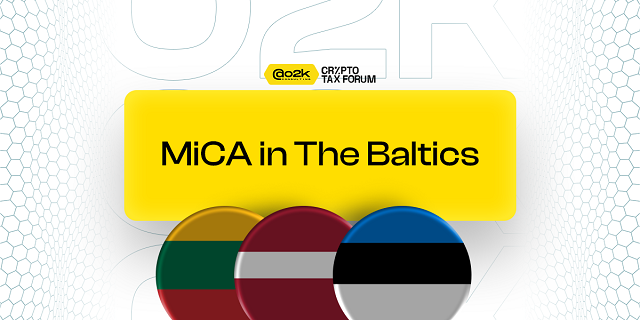The body of law of the European Union regarding taxation of cryptocurrencies is diverse and requires special attention to investors deciding to use this type of commodities due to the fact that it entitles different legal treatments regarding the nature of the goods and also the percentage that are taxed with.
Crypto investors in Europe are facing increasingly sophisticated tax rules. The BENELUX region—Belgium, the Netherlands, and Luxembourg—offers three distinct approaches to crypto taxation. Whether you're trading Bitcoin as a side hustle or running a crypto-focused business, it's critical to understand how your crypto gains may be taxed depending on your residency. Here's a breakdown of how crypto is taxed in each BENELUX country in 2025.
Belgium: Taxation Based on Investor Profile
Belgium offers a legal framework focused on the profile the investor profiles, therefore we can find three different types of investors: (i) individual or amateurs, (ii) private and (iii) professional. Despite the absence of dedicated crypto tax laws, such transactions are assessed under general asset classification rules
(i)Individual investors or the “good father of the family”: This is a fortunate case because these type of capital gains is tax-free, the profile of the investor must follow some lines of behavior (frequency of transactions, method of acquisition, investment strategies used and the activities the investor is involved are the main analysis to be handled by tax lawyers when supporting individual investors).However, the person must observe that the capital gain does not fall under a speculative activity or is related to the mining sector and must also take into account la liste de questions crypto-monnaies published by the Service Public of Federal Finances in Belgium.
(ii)Private or speculative income: reflects that the investors are displaying a more active role when it comes to high risk taking and the need for quick gains in assets. As a practical example, let's imagine Paul (who lives in Belgium) bought one Bitcoin at the price of 15000 euros and its value went up two weeks later so he was able to sell it at 25000 euros.
In order to calculate the capital gain tax amount to pay we have to follow the next formula in observation of article 171 of the Belgian Income Tax Code : (25000 - 15000 € ) * 33% = 10000 €* 33% = 3300 €. In this imaginary case, the capital gain tax applies to the amount earned after the transaction of selling the bitcoin which is the profit Paul made after the value of its asset went up.
(iii)Professional income: this income is gained by a person who is currently engaged in transactions with crypto and it is one of the principal (main) sources of income and has the expertise and knowledge to trade in complex industries like softwares, futures and other financial instruments. This professional income is subject to a progressive tax scale. So let's imagine that Paul from the previous example already is an expert in crypto and it's now his main source of income and he earned 50000 euro last week.
According to the progressive tax scale, the first €13,450 is taxed at 25% (€3,362.50), the next €10,359 at 40% (€4,143.60), the following €17,459 at 45% (€7,856.55), and the remaining €8,639 at 50% (€4,319.50). The total tax payable amounts to €19,682.15.
The Netherlands: A structured (boxed) tax system
The Netherlands has a boxed taxation system in which the taxpayer can face different sets of tax rates depending on the types of incomes perceived. According to this boxing structure, we have the following types of income: (i) Box 1 that contains incomes from employment; (ii) Box 2 reflects the incomes from business the taxpayer owns and (iii) Box 3 taxes the incomes of assets in general. (also called "wealth tax").
According to the Dutch tax system, let's consider a few examples using Jeroen who lives in Vlissingen.
If Jeroen engages in crypto as a professional activity, his income will fall under Box 1 and be taxed at progressive rates:
- 35.82% on income up to €38,441,
- 37.48% on income between €38,441 and €76,817, and
- 49.5% on income above €76,817.
Now, imagine Jelmer holds crypto assets through a limited company he owns, Mining Resources Corporation B.V. In that case, the income is subject to corporate income tax at the company level. If profits are distributed to him as a shareholder, Jeroen will additionally pay dividend tax at a rate ranging from 24.5% to 33%, depending on the total income.
If Jeroen’s crypto assets are considered passive investments, they fall under Box 3 of the Dutch tax system. In Box 3, tax is not levied on actual gains, but on a fictitious (deemed) return, which depends on the type of assets and their total value.
Step-by-step breakdown:
- Suppose Jeroen has €100,000 in crypto assets.
- The Dutch tax authority assumes a deemed return on this amount, which for crypto (classified as “other investments”) is approximately 6.17% in 2025. (This percentage may vary depending on the exact asset mix.)
- The taxable deemed return would be:
€100,000×6.17%=€6,170€100,000 × 6.17\% = €6,170€100,000×6.17%=€6,170
- This fictitious income of €6,170 is then taxed at a flat rate of 36%:
€6,170×36%=€2,221.20€6,170 × 36\% = €2,221.20€6,170×36%=€2,221.20
So, Jeroen pays €2,221.20 in Box 3 tax on his €100,000 crypto portfolio, regardless of whether the assets actually increased or decreased in value during the year. The €2,221.20 is the final tax, unless certain deductions apply — such as debts, allowances (heffingsvrij vermogen), or other qualifying deductions.
Luxembourg: a case of clear rules and no ambiguity
Regulation in Luxembourg states that the taxation of crypto depends of the role of the taxpayer (investor or trader), in the case of investors the incomes will be taxed if they are speculative but also following a temporal criteria of capital gains with rates that can go up to 42%.
The temporal aspect is really crucial since short term capital gains will be treated as speculative incomes and will be fully taxed without space for debate and long term crypto gains are tax-exempted. Mining and other activities that involve the holding of the assets for less than six months are also taxed as regular income with a tax rate that fluctuates between 22 and 25%.
An exception to the taxation appears if the amount per year is less than 500 euros and also if the amount is held for more than six months as we mentioned , for example, Maurice bought a bitcoin in March 2024 and he sold it recently in April 2025, the gains are not taxed.
In conclusion we can observe that BENELUX has different rules regarding crypto assets, on one hand Belgium has different steps and rules to follow regarding the profile of the investor and is really exquisite and detailed when it comes to the scenario of no-taxation in contrast to Luxembourg where holding the asset for more than 6 months turns the investor into a non-speculative regulation where the income is tax exempted. The analysis of where to invest in crypto assets finally depends on the investor and a legal analysis to be done by tax law professionals.







.png)





















.jpeg)


























.jpg)






































